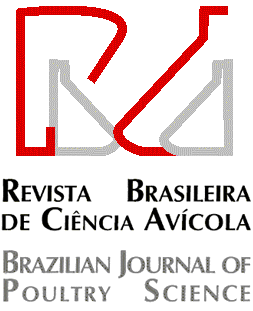ABSTRACT
This experiment was conducted to evaluate the effects of dietary nitrogen-corrected apparent metabolizable energy (AMEn) levels on meat-type quail performance and carcass traits from 1 to 14d of age. A total of 1120 not sexed meat-type quails were randomly distributed to seven treatments, with eight replicates with 20 quails each. A basal corn and soybean meal-based diet was formulated to meet or exceed quail nutritional requirements, except for ME. Graded levels of soybean oil were added to the basal diet in replacement, to sand, to obtain dietary treatments (2,600; 2,700; 2,800; 2,900; 3,000; 3,100 and 3,200 KcalAMEn/kg diet). Data were analyzed as one-way ANOVA and optimum AMEn levels were estimated using polynomial regression model. Increasing in dietary AMEn levels elicited a linear decrease (p<0.01) in feed intake and nutrient intake (AMEn, protein and lysine). Quail weight gain and final body weight exhibited a quadratic response (p<0.03) to increased AMEn levels, being both optimized at 2820 KcalAMEn/kg diet. Graded AMEn levels elicited a linear increase (p<0.01) in carcass dry matter and fat content, whereas moisture content was linearly decreased (p<0.01). The protein content of the carcasses was not influenced (p>0.05) by AMEn. Based on the results, the dietary AMEn level that warrants adequate performance and carcass traits of meat-type quails from 1 to 14d of age is 2,820 Kcal/kg diet.
Keywords:
Carcass traits; Coturnix coturnix coturnix; performance
